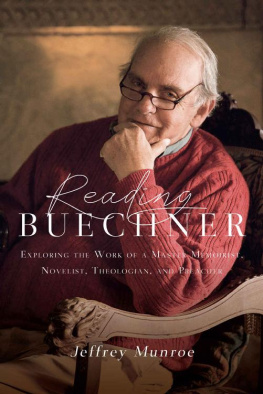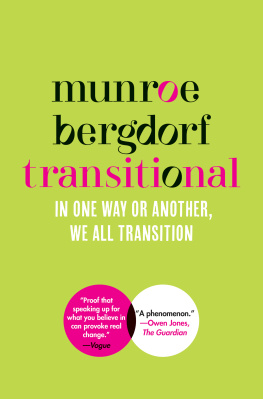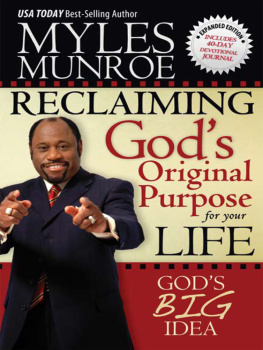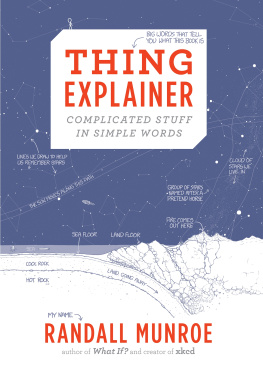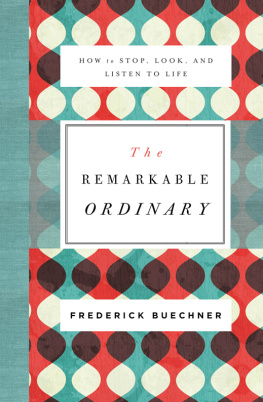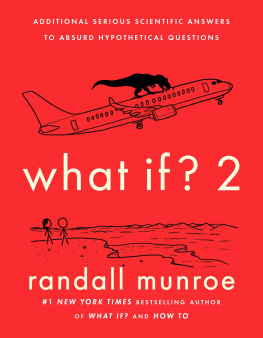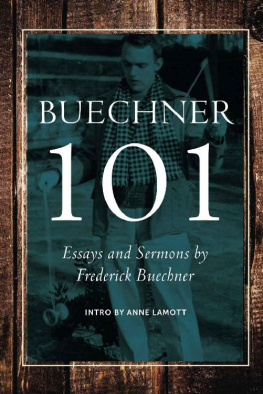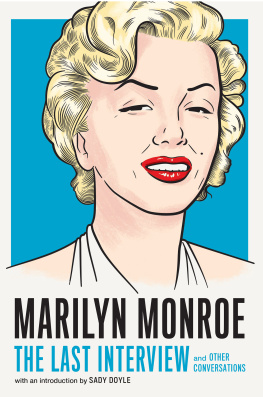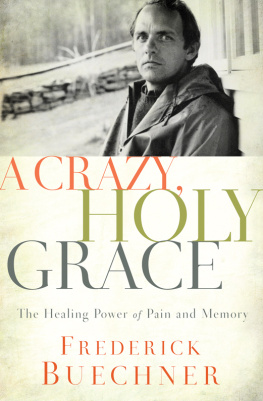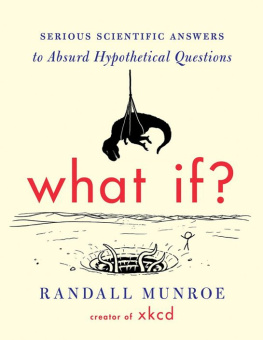Jeffrey Munroe - Reading Buechner
Here you can read online Jeffrey Munroe - Reading Buechner full text of the book (entire story) in english for free. Download pdf and epub, get meaning, cover and reviews about this ebook. year: 2019, publisher: InterVarsity Press, genre: Detective and thriller. Description of the work, (preface) as well as reviews are available. Best literature library LitArk.com created for fans of good reading and offers a wide selection of genres:
Romance novel
Science fiction
Adventure
Detective
Science
History
Home and family
Prose
Art
Politics
Computer
Non-fiction
Religion
Business
Children
Humor
Choose a favorite category and find really read worthwhile books. Enjoy immersion in the world of imagination, feel the emotions of the characters or learn something new for yourself, make an fascinating discovery.
- Book:Reading Buechner
- Author:
- Publisher:InterVarsity Press
- Genre:
- Year:2019
- Rating:4 / 5
- Favourites:Add to favourites
- Your mark:
- 80
- 1
- 2
- 3
- 4
- 5
Reading Buechner: summary, description and annotation
We offer to read an annotation, description, summary or preface (depends on what the author of the book "Reading Buechner" wrote himself). If you haven't found the necessary information about the book — write in the comments, we will try to find it.
Reading Buechner — read online for free the complete book (whole text) full work
Below is the text of the book, divided by pages. System saving the place of the last page read, allows you to conveniently read the book "Reading Buechner" online for free, without having to search again every time where you left off. Put a bookmark, and you can go to the page where you finished reading at any time.
Font size:
Interval:
Bookmark:
Buechner
NOVELIST, THEOLOGIAN, AND PREACHER
Foreword by Makoto Fujimura

FOR GRETCHEN, AMANDA,
AND JESSE

Makoto Fujimura
T HE FIRST LINES OF JEFF MUNROES REFLECTION on Frederick Buechners work take the reader into Jeffs sudden traumatic journey with his twenty-four-year-old fiance. The immediacy of his recollections brought me back to the forlorn, trauma-filled days after 9/11. In my loft in downtown Manhattan, barely three blocks away from Ground Zero, I was trying to cope with the losses of our neighborhood and neighbors, and trying to find the normalcy of daily rhythm for our children. We werent allowed back home until Thanksgiving, and in the ensuing months, after our adrenaline rush had disappeared, I remember the emptiness of the vacuous, vacant hole in the sky and the acrid smell of the air. Ground Zero was my home, and my children had become Ground Zero children.
One evening during those fear-filled, uncertain days, I was writing in my home office when I noticed a book that I had placed on a small shelf in front of me: Frederick Buechners The Longing for Home. I had placed the book there, partly because it was well-designed (unusual for a Christian author back then), among other well-designed items I liked (such as a Van Gogh baseball I bought at the Met Museum gift shop that made me smile). Now I began to reread Buechner and began my deeper journey with the content of a book of midlife reflection, which became a map for my post-9/11 fog-filled days.
The irony here is that I was home, but I was yet longing for one. Buechners eloquence is unmatched:
The world floods in on all of us. The world can be kind, and it can be cruel. It can be beautiful, and it can be appalling. It can give us good reason to hope and good reason to give up all hope. It can strengthen our faith in a loving God, and it can decimate our faith. In our lives in the world, the temptation is always to go where the world takes us, to drift with whatever current happens to be running strongest. When good things happen, we rise to heaven; when bad things happen, we descend to hell. When the world strikes out at us, we strike back, and when one way or another the world blesses us, our spirits soar. I know this to be true of no one as well as I know it to be true of myself.... The fragmentary nature of our experience shatters us into fragments. Instead of being whole, most of the time we are in pieces, and we see the world in pieces, full of darkness at one moment and full of light the next.
The last two lines of this paragraph opened me up like a sharp surgeons knife.
As an artist, I employ the nihonga method (literally Japanese style painting). The materials used for this method are pulverized minerals. At the nihonga pigment shop, artisans pulverize minerals such as malachite and azurite by hand, so they develop a refractive quality that I then layer onto a surface of paper. The resulting layers are prismatic, creating not just blue and green but rainbow hues. In Buechners writing, and now with Jeff Munroes guidebook for understanding Buechner deeply, there are pulverized rainbow hues that help us see into our lives as well. We can find true beauty in pulverization. And we can see the full spectrum of colors through a world in pieces, especially if you live in a home called Ground Zero.
Furusato, a Japanese term for home, literally means old country. Its the place that you have grown up in. For my children, furusato will forever be Ground Zero. What it means for them to come home is different in a post-9/11 world, and yet their longing for a true home is still there. What Fredrick Buechner focuses on, which Jeff highlights in this book, is that such a journey of longing is defined individually by unique markers, real faces and real names, refracted through the brokenness of a shattered world. They are signposts of a greater reality to come, and they fill us with grace, laughter, disappointment, and new desires. The vacant hole in the sky, too, will be replenished with new buildings, but our hearts will always be longing for home, because our fragmentary lives will push us to people, communities, and ultimately a New Country.
Home will have particular faces: for Jeff it is Gretchen; for Buechner, its Naya, Godric, Bebb, Brendan, and Judy, to name a few, and of course, his daughters, and his father, who committed suicide when Buechner was a boy. We hear their voices, and their stories refract beautifully. Buechner makes them fully present, generously inviting us into their world. Buechners eloquence, his theological acumen, and his poetic nuances are ultimately brought into illuminating the people in the communities and families he has endeavored to uphold. Jeffs gift to us gives us a glimpse into the vast, rich arena of Buechners offerings, a kind of a kaleidoscopic capturing that is mesmerizing to peek into, and gives light to each broken piece of their sacred stories. We all have been pulverized in some way, and the layers of these prismatic stories are worth beholding, even in a place called Ground Zero.
O NE JULY AFTERNOON IN 1985, a month before our wedding, my twenty-four-year-old fiance suffered a massive stroke.
I was housesitting in my hometown of Holland, Michigan, minding both a house and a high school student whose parents were away for a week, and my fiance, Gretchen, had promised to make us dinner that evening. The high school student and I were both sacked out on his family room couches while Harry Caray droned on about the Cubs. When Gretchen came in from work, we barely moved except to give her a hard time about waking us up. A moment later she called to me from the bathroom. Im not sure why I got right up, given that wed just been goofing around, but something in her voice gave me the idea that I should. I found her standing in the bathroom with a ribbon of drool dropping down from the left side of her mouth. A tic was starting spasms on the right side of her face. Something happened, she said.
The hospital was only a couple of blocks away, and I hit seventy miles an hour on a residential street getting there. Once there, I made one phone call, and before long the entire emergency waiting area filled with concerned friends who came to sit with me. Gretchen had been taken into a treatment room, and the situation seemed bleakI didnt know if she was going to live or die, and I had no idea what sort of person she would be if she survived. I wondered if we would still get married and what that might be like if she didnt recover well. After a while, all the adrenaline that had fueled my mad rush to the hospital started to wear off. As I sat thinking about the question marks clouding our future, an overwhelming weight descended. I began to cry.
I was sitting between two friends, both older than me, men I respected and admired. One of them put his hand on my shoulder. I was expecting some wise, soothing words of comfort and empathy. Instead he offered this: Get a hold of yourself. Dont do that. Dont cry. She needs you to be strong. You have to be strong.
In one way he was right. She would need a lot of strength from me, more than I ever imagined I had. But in every other way he was wrong. The best thing for me would have been to allow myself to feel what was happening. Instead, I did what he said. I pulled myself together. I stopped crying. I stopped feeling. I buried the pain.
Font size:
Interval:
Bookmark:
Similar books «Reading Buechner»
Look at similar books to Reading Buechner. We have selected literature similar in name and meaning in the hope of providing readers with more options to find new, interesting, not yet read works.
Discussion, reviews of the book Reading Buechner and just readers' own opinions. Leave your comments, write what you think about the work, its meaning or the main characters. Specify what exactly you liked and what you didn't like, and why you think so.

